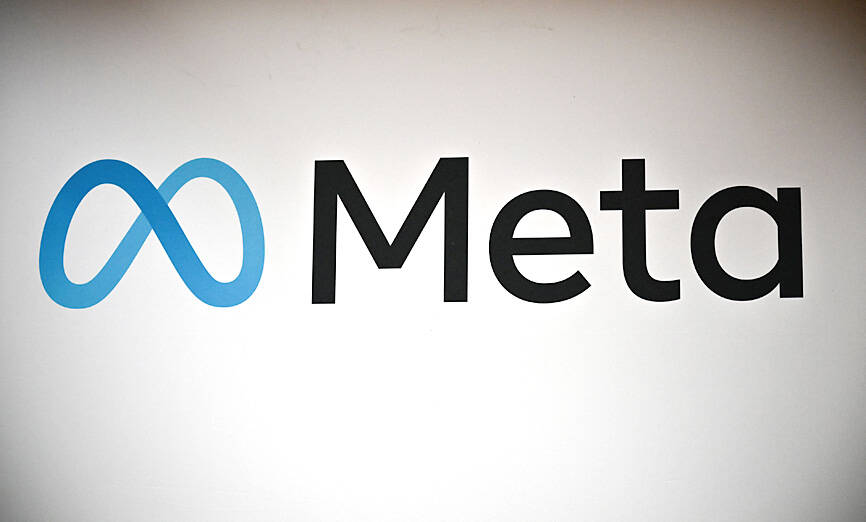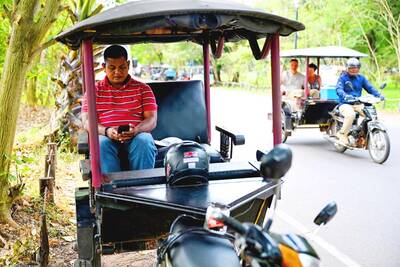Someone in China created thousands of fake social media accounts designed to appear to be from Americans and used them to spread polarizing political content in an apparent effort to divide the US ahead of next year’s presidential elections, Meta said on Thursday.
The network of about 4,800 fake accounts was attempting to build an audience when it was identified and eliminated by the tech company, which owns Facebook and Instagram. The accounts sported fake photos, names and locations as a way to appear like everyday American Facebook users weighing in on political issues.
Instead of spreading fake content as other networks have done, the accounts were used to reshare posts from X, the platform formerly known as Twitter, that were created by politicians, news outlets and others. The interconnected accounts pulled content from both liberal and conservative sources, an indication that its goal was not to support one side or the other but to exaggerate partisan divisions and further inflame polarization.

Photo: AFP
The newly identified network shows how US’ foreign adversaries exploit US-based tech platforms to sow discord and distrust, and it hints at the serious threats posed by online disinformation next year, when national elections would occur in Taiwan, the US, India, Mexico, Ukraine, Pakistan and other nations.
“These networks still struggle to build audiences, but they’re a warning,” said Ben Nimmo, who leads investigations into inauthentic behavior on Meta’s platforms. “Foreign threat actors are attempting to reach people across the internet ahead of next year’s elections, and we need to remain alert.”
Meta Platforms Inc, based in Menlo Park, California, did not publicly link the Chinese network to the Chinese government, but it did determine the network originated in that country. The content spread by the accounts broadly complements other Chinese government propaganda and disinformation that has sought to inflate partisan and ideological divisions within the US.
To appear more like ordinary Facebook accounts, the network would sometimes post about fashion or pets. Earlier this year, some of the accounts abruptly replaced their American-sounding user names and profile pictures with new ones suggesting they lived in India. The accounts then began spreading pro-Chinese content about Tibet and India, reflecting how fake networks could be redirected to focus on new targets.
Meta often points to its efforts to shut down fake social media networks as evidence of its commitment to protecting election integrity and democracy, but critics say the platform’s focus on fake accounts distracts from its failure to address its responsibility for the misinformation already on its site that has contributed to polarization and distrust.
For instance, Meta is to accept paid advertisements on its site to claim the US presidential election in 2020 was rigged or stolen, amplifying the lies of former US president Donald Trump and other Republicans whose claims about election irregularities have been repeatedly debunked. Federal and state election officials and Trump’s own attorney general have said there is no credible evidence that the presidential election, which Trump lost to Democrat Joe Biden, was tainted.
When asked about its ad policy, Meta said it is focusing on future elections, not ones from the past, and would reject ads casting unfounded doubt on upcoming contests.
And while Meta has announced a new artificial intelligence (AI) policy that would require political ads to bear a disclaimer if they contain AI-generated content, the company has allowed other altered videos that were created using more conventional programs to remain on its platform, including a digitally edited video of Biden that claims he is a pedophile.
“This is a company that cannot be taken seriously and that cannot be trusted,” said Zamaan Qureshi, a policy adviser at the Real Facebook Oversight Board, an organization of civil rights leaders and tech experts who have been critical of Meta’s approach to disinformation and hate speech.
“Watch what Meta does, not what they say,” Qureshi added.
Meta executives discussed the network’s activities during a conference call with reporters on Wednesday, the day after the tech giant announced its policies for the upcoming election year — most of which were put in place for prior elections.
However, next year poses new challenges, said experts who study the link between social media and disinformation.
Not only will many large countries hold national elections, but the emergence of sophisticated AI programs means it is easier than ever to create lifelike audio and video that could mislead voters.
“Platforms still are not taking their role in the public sphere seriously,” said Jennifer Stromer-Galley, a Syracuse University academic who studies digital media.

The death of a former head of China’s one-child policy has been met not by tributes, but by castigation of the abandoned policy on social media this week. State media praised Peng Peiyun (彭珮雲), former head of China’s National Family Planning Commission from 1988 to 1998, as “an outstanding leader” in her work related to women and children. The reaction on Chinese social media to Peng’s death in Beijing on Sunday, just shy of her 96th birthday, was less positive. “Those children who were lost, naked, are waiting for you over there” in the afterlife, one person posted on China’s Sina Weibo platform. China’s

‘NO COUNTRY BUMPKIN’: The judge rejected arguments that former prime minister Najib Razak was an unwitting victim, saying Najib took steps to protect his position Imprisoned former Malaysian prime minister Najib Razak was yesterday convicted, following a corruption trial tied to multibillion-dollar looting of the 1Malaysia Development Berhad (1MDB) state investment fund. The nation’s high court found Najib, 72, guilty on four counts of abuse of power and 21 charges of money laundering related to more than US$700 million channeled into his personal bank accounts from the 1MDB fund. Najib denied any wrongdoing, and maintained the funds were a political donation from Saudi Arabia and that he had been misled by rogue financiers led by businessman Low Taek Jho. Low, thought to be the scandal’s mastermind, remains

Australian Prime Minister Anthony Albanese yesterday announced plans for a national bravery award to recognize civilians and first responders who confronted “the worst of evil” during an anti-Semitic terror attack that left 15 dead and has cast a heavy shadow over the nation’s holiday season. Albanese said he plans to establish a special honors system for those who placed themselves in harm’s way to help during the attack on a beachside Hanukkah celebration, like Ahmed al-Ahmed, a Syrian-Australian Muslim who disarmed one of the assailants before being wounded himself. Sajid Akram, who was killed by police during the Dec. 14 attack, and

VISHNU VANDALS: A Cambodian official accused Thailand of destroying a statue in a disputed border area, with video showing the Hindu structure being torn down The Thai military said ceasefire talks with Cambodia, set to begin yesterday, are expected to conclude with a meeting of the countries’ defense ministers on Saturday, as the two sides seek to end weeks of deadly clashes. The talks started at 4pm in Thailand’s Chanthaburi Province, which borders Cambodia. The Thai Ministry of Defense outlined several demands to be discussed ahead of the bilateral meeting of the General Border Committee (GBC) on Saturday. If secretariat-level discussions fail to reach agreement on key technical frameworks such as troop deployments, the Thai side would not proceed with the GBC meeting or sign any agreement on